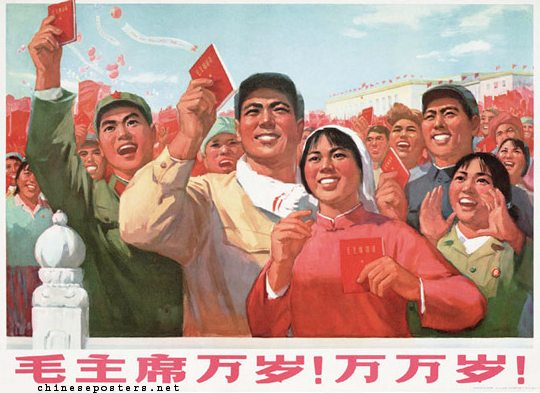The essay below is the latest in an occasional series by our expatriate English correspondent Peter on the history of the Socialist Left in Britain.
The Red Evolution IV: The Subversive Left, the Destabilising Left, the Antecedents of Generation Snowflake and the Ultimate Surrender of Rationality
by Peter
ONE
Having lived through it, I believe the period from 1960 to 1975, commonly known as the ’60s, was a carefully devised trap into which we all propelled ourselves, willingly and of our own volition, a knot with a multitude of apparently loose strands which, when drawn tightly together, ensnared us all. The summer of peace and love did not happen, at least, not the way they said it did. With the wisdom of hindsight, I believe that what did happen in the 1960s was mass-indoctrination; the first of a succession of generations to move into Communism, not by force, but by stealth, subversion, sex, drugs and rock and roll by way of a process which began many years before.
World War II finally ended on 2nd September 1945 with the signing of the Peace Treaty with Japan on the deck of the USS Missouri in Tokyo harbour, Germany having surrendered to the Allies four months earlier, after Hitler had thoughtfully put himself out of everyone’s misery. As a result, the Soviet Union had acquired East Germany and much of Eastern Europe, upon which by means of the eradication of political institutions, terror campaigns, purges of dissidents, mass murder and other tried and tested methods of enforcing totalitarian control, the Soviet dictator Josef Stalin ruthlessly imposed communist rule in defiance of assurances extracted from him by his allies at Yalta in February 1945 that free elections would be held. He guessed rightly that Western leaders had had enough of war and would not take up arms again — at least, not then, and not over Eastern Europe.
Stalin and his cronies had planned the Communist takeover of Eastern Europe well before 1939, so that when the Red Army had ‘liberated’ those countries, police forces, both conventional and covert Communist party structures were already in place and awaiting activation. In the late 1940s, with the Soviet Empire now a work in progress, Stalin was intent on extending Soviet influence, believing it was only a matter of time before Western Europe fell into its clutches, but there were several restraining influences.
While Western Europe was nearly destitute and primarily engaged on rebuilding what remained of its society and its cities, thanks in a large part to the Marshall Plan, it was still prepared to defend itself, and if it were to fall short in this enterprise, then America stood ready, willing and able to pick up any deficit. Additionally, the Soviet Union had paid a terrible price for its own role in what it called The Great Patriotic War, far greater than any other participating country. Stalingrad was not the only Soviet City to have been reduced to rubble during hostilities. In Western Russia alone, the degree of desolation caused by a scorched earth policy exercised by both sides had all but obliterated 1700 towns and approximately 70,000 villages, along with 32,000 factories and 65,000 kilometres of railway track. In addition, the loss of life suffered by the population of the USSR as published by the current Russian Government totals 26.6 million people, two thirds of which were civilians, but this has been called a conservative estimate by Russian scholar Boris Sokolov, who believes there were around 43.3 million Soviet lives lost, 27 million of which were civilians.
Therefore Stalin’s options for Soviet expansion through direct assault appeared limited, but there was one option, a proxy war in the east. This would require a minimal call on Soviet manpower while ascertaining firstly whether the West still had the stomach for a fight, and secondly whether his newly-acquired Chinese allies would rally to the cause. The Korean Peninsula had been occupied by the Japanese since 1910, and following their surrender in 1945 had been divided along an area just north of the 38th Parallel between the Soviet-backed north ruled by the Communist Kim Il-Sung and the US backed south led by President Syngman Rhee. It would be fair to say that Soviet support for the North Korean leadership was lukewarm, while the Americans regarded Rhee as the best of a particularly nasty bunch, whose only positive characteristics were his fluency in English and his aversion to communism.
Throughout 1949 and 1950 the North Korean military had been receiving large quantities of Soviet tanks, artillery and aircraft as well as intensive combat training, while its numbers had been enhanced considerably by the return of battle-hardened veterans who had fought on the Communist side in the Chinese civil war. By contrast, the South Korean army had little more than small arms with which to defend itself. A North-versus-South conflict appeared to be a very unequal contest, and this encouraged Stalin to give the word for his North Korean client to invade the South, which it did on 25th June 1950.
Although the invasion caught the Americans by surprise, the UN reacted with amazing speed, compared to the lethargic Arab-dominated talking shop it has now become. On 27th June it authorized a US-led multinational force from what would eventually become twenty-one countries to repel the North Korean invasion. After the first months of the conflict, coalition troops were very much on the back foot until a seaborne UN counter-offensive landed at Inchon cut off North Korean troops and effectively altered the course of the war. The retreating North Korean forces were pursued northwards to an area close to the border with China, whereupon in response to an earlier commitment made to Stalin, Mao Zedong ordered the Communist Chinese army into the war, dispatching a massive force across the border into Korea, compelling the UN armies to retreat in the face of its ferocious advance.
Continue reading →


